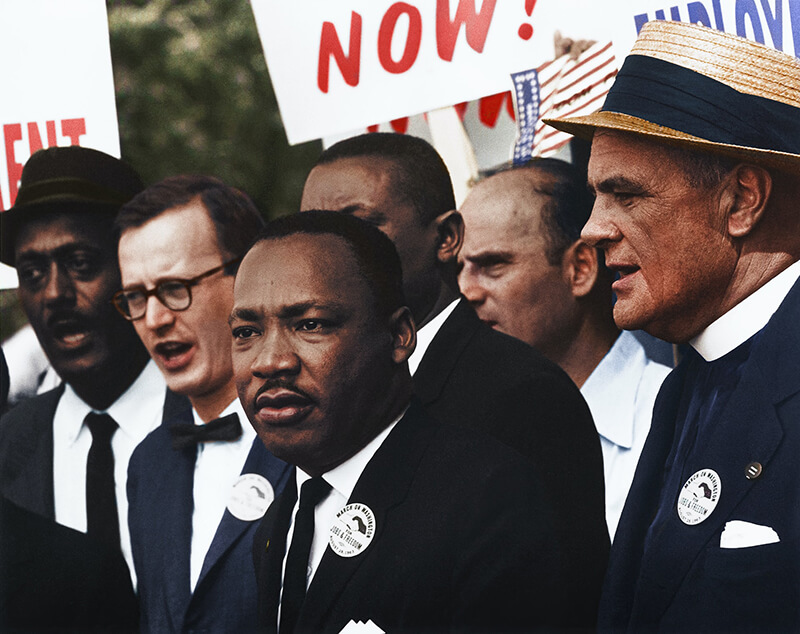Well, we live in a world where most civil workers, politicians, corporate leaders, and other public figures are obliged to give speeches. Thus, they prepare their speeches by using speech writing.
What is speech writing?
Speech writing is the skill of using words to communicate a message to the public. The process of preparing a speech is comparable with the process of writing an article. You must know the aim of your speech, the needed length or time limit, and conduct an audience analysis. It can be difficult to come up with a good speech because you must hold the audience’s attention. However, writing for a spoken word is a unique discipline that demands congressional speechwriters’ work to be prepared largely, but not completely, to be heard rather than read. Speeches should be written in straightforward, direct, and generally short words so that audiences can understand them.
As I mentioned before, when someone prepares a speech, they must keep in mind the target audience. The best speeches are those that are written to attract and maintain the reader’s attention from beginning to end. As a result, there must be something in the speech that needs to be able to hold the reader’s attention. And the writing comes in three parts: an intro, body, and closing;
- At the beginning, the speech must have a great hook that not only empowers, but also inspires the audience to pay attention to every word. While it is necessary to establish the background for the speech and state of major argument, which encapsulates the larger theme of the speech.
- In the body of the speech, the information needs to be divided in each paragraph and the timeline events should be in chronological sequence. The supporting parts should be presented straightforwardly in this section.
- It’s critical to finish a speech on a positive note and give the audience some thoughts. It’s good to rewrite the speech’s main ideas and leave something for listeners to consider. To assist the audience to remember the major themes, the speech must provide a call to action with a compelling closing sentence. And there are top paper writing services that can help anyone with different types of writing.
Speechwriting In Civil Service
However, when it comes to using speech writing in civil services, a government speechwriter essentially assists ministers in communicating their ideas, and goals. It usually begins with a meeting with the minister to have a general idea of the primary arguments they wish to make. Then, there’s having in-depth discussions with policy teams, which can include numerous:
- press officers
- teams
- political special advisers
- analysts
Throughout this process, the speechwriter serves as a channel for the ideas to flow. The speechwriter catches every idea, every perspective, and every thought that comes their way. Those concepts are then simplified, sorted, rearranged, developed, and braided into a story that makes logic and comes all together thanks to the speechwriter. To do so, a speechwriter must be able to communicate difficult material clearly and convincingly. They must weave it all together into a unified whole that goes up and down to maintain interest and generate contrasts – quiet and loud parts, long flowing paragraphs and quick percussive points, poetic and political language.
Along with producing speeches, speechwriters are increasingly diversifying and becoming generalist copywriters. They’re producing and editing important departmental outputs like green papers and annual reports, which require great, captivating content. And when it comes to more ideas, styles, and ways, many departments are using the best proofreading services to help with great speech writing.
A speechwriter can often find themselves in the middle of a chaotic room, especially as the speech’s deadline approaches. Surrounded by convincing and frequently quiet senior officers, voicing their opinions for a line to be included can be one of the loneliest, most difficult, and skillful aspects of being a speechwriter. In other words, the speechwriter must coordinate all the ideas from the officers and ensure that the speech has a consistent pulse and goal. And it’s always vital to remember who’s giving the speech: it’s the boss’s speech, which means it’s the person who has to stand up and deliver it, whose lips the words will come out of, and whose name and reputation are on the line.
So, the speechwriter must choose the words carefully. While the Member is associated with one political group and represents a specific area of the district or state, the writer must always remember that he or she represents all of the people and offers proper attention and respect to the genuine ideas and aspirations of all people. Also, speechwriters must adjust their wording to the intended audience’s level of political affiliation, or lack thereof. Another responsibility for the speechwriter is to determine the context for which the Member is speaking and adjust the remarks properly. In today’s society, public people are expected to offer speeches at practically every secular public celebration and many religious ceremonies. The speechwriter must make sure that both the occasion and the speech are in harmony. Veterans’ Day and Memorial Day, for example, are two of the most serious national holidays of the year. The speechwriter should concentrate on themes of remembrance, devotion, and sacrifice for these two events.
However, the speech should be poetic with rhythm, metaphor, and other idioms. And most importantly, to avoid boredom. In that case, many of the world’s finest speakers employ repetition with variation as a basic speech writing method to stress crucial points without being boring. For example, Martin Luther King’s “I have a dream” speech, used that term to start a series of his dreams for a brighter future, was a stunning example of this strategy.

The Bottom Line
To summarize, a good delivery can take a mediocre speech and make it sound fantastic. Poorly delivered can, and often does, derail even the best-prepared speeches. While delivering is not the speechwriter’s primary responsibility, it must be kept in mind throughout the writing process.
Good speech writing has a good sense of style, grammar accuracy, understanding of English syntax, expanded vocabulary, etc. The best speechwriters will enrich their work with a richer background through consistent daily reading. However, to prepare a speech that is both helpful and genuine, it is necessary to understand how a Member speaks. A speech should be examined three times: once by the writer, once by the potential speaker, and once by a neutral third party.
In the civil services, the type of response evoked by an effective political speech is determined not by rhetorical norms, but by the type of reaction it evokes. As a result, the speaker is constantly concerned with measuring that reaction and evoking “positive comments.” This entails establishing a network of contacts who can report on the audience’s thoughts and reactions. And once again, the speech must be clear, engaging, and real. Excellent speech writing necessitates the speaker assuming a role: he or she must be able to incorporate confidence and feel the personality of a listener to some level.
The purpose of the speech, at the end of the day, is for the speaker to be able to make a positive change in the community that the Master serves.



































